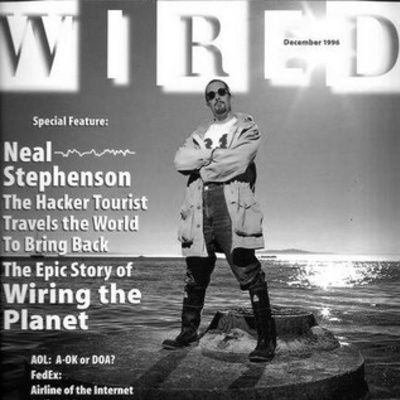Inside India's Booming Dark Data Economy
When it comes to data from India’s 500 million daily internet users, everything is for sale.
When it comes to data from India’s 500 million daily internet users, everything is for sale.
Snigdha Poonam, Samarth Bansal Rest of World Dec 2020 Permalink
An interview with “one of the most influential data gurus” in electoral politics.
Eric Levitz New York Aug 2020 Permalink

A 42,000-word, 3-continent spanning “hacker tourist” account of the laying of the (then) longest wire on earth.
Neal Stephenson Wired Dec 1996 2h45min Permalink
A startup’s plan to launch a fleet of cheap, small, ultra-efficient imaging satellites and revolutionize data collection.
David Samuels Wired Jun 2013 15min Permalink
On the Google conundrum:
It’s clearly wrong for all the information in all the world’s books to be in the sole possession of a single company. It’s clearly not ideal that only one company in the world can, with increasing accuracy, translate text between 506 different pairs of languages. On the other hand, if Google doesn’t do these things, who will?
Daniel Soar London Review of Books Oct 2011 15min Permalink
On Edward Tufte, the great data visualization (read: charts and graphs) theorist and author of 1983’s The Visual Display of Quantitative Information, one of the most successful self-published books ever produced.
Joshua Yaffa Washington Monthly May 2011 40min Permalink
Political races don’t run on ideas and grassroots activism–they run on voter databases. And no one has more voter data than Aristotle Inc., whose information has helped elect every president since Reagan.
James Verini Vanity Fair Dec 2007 15min Permalink
Carl Malamud is on a quest to change the way average citizens can interface with the government – by scanning its paperwork and making it available free online. And he’s financing his effort with his own credit cards.
Nancy Scola The American Prospect Jun 2010 10min Permalink
A growing movement is seeking a deeper knowledge of themselves through tracking sleep, exercise, sex, food, location, productivity. Technology has made it possible—but hasn’t taught us how to interpret the findings.
Gary Wolf New York Times Magazine Apr 2010 Permalink